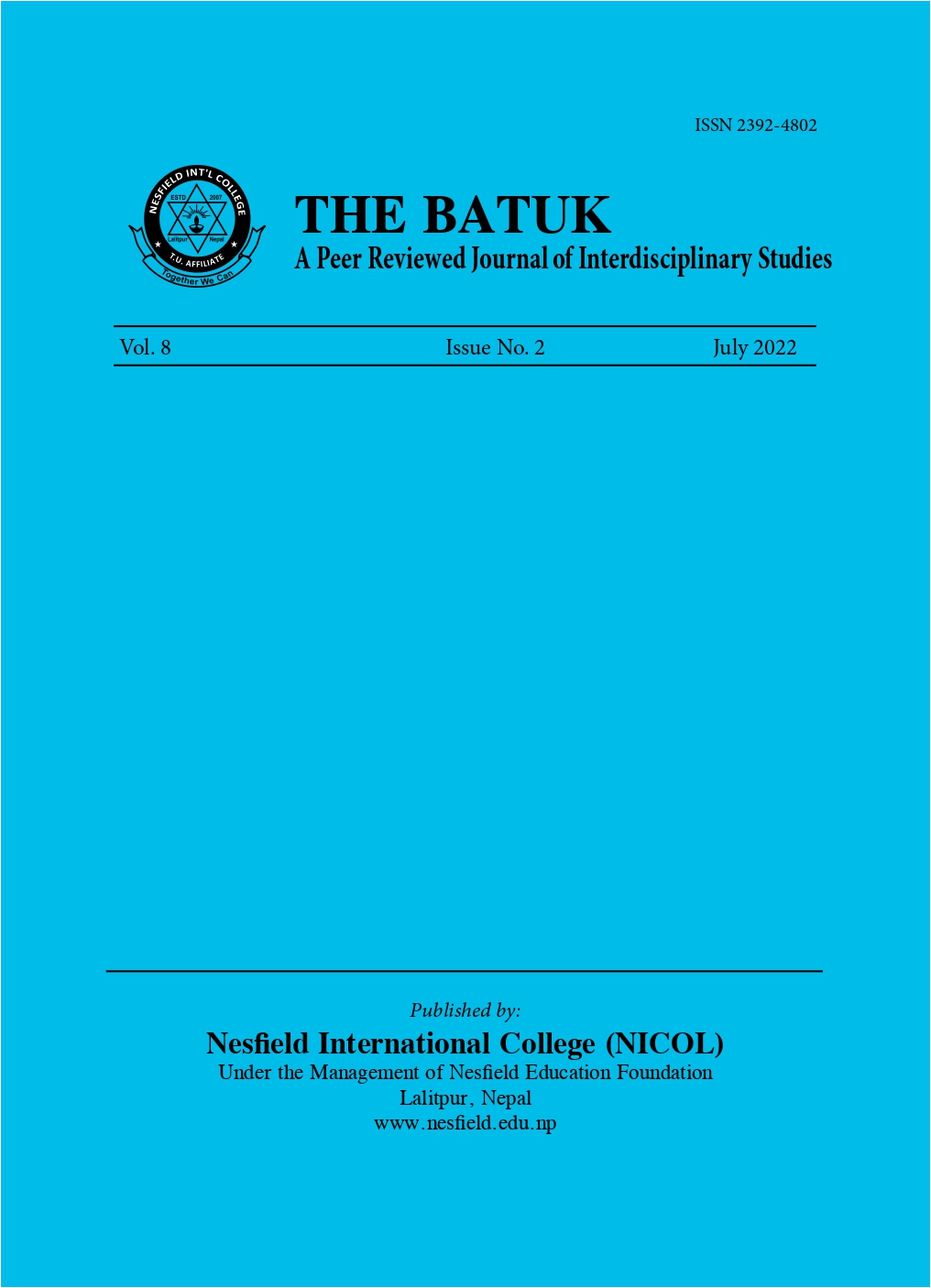Impact of Reward Systems on Employee Performance of Service Sector Institutions in Nepal
DOI:
https://doi.org/10.3126/batuk.v8i2.47008Keywords:
reward systems, employee performance, service sector institutionsAbstract
Reward management in an organization helps to motivate and retain employees at work. It is an important element of human resource management. It is the process of creating, implementing and controlling an effective reward system in the organization that helps to maintain and improve organizational performance. It emphasizes the strategic purposes of attracting, motivating and retaining employees. Human resources are said to be the human capital that can play significant role for improving competitive advantage and sustaining business activities of all the organizations including financial institutions. This study attempts to analyze the impact of reward systems on employee performance of service oriented institutions of Nepal. Opinion on rewards in terms of salary, bonus, promotion, empowerment, achievement, appreciation, and employee performance from 395 employees of service sector institutions working at managerial, officer and assistant levels are taken into account. Pearson and Spearman Rho Correlation are used to find out the correlation between reward system and employee performance where multiple regression is used to analyze the impact of reward systems on employee performance. The study concluded that reward systems have positive correlation and impact of employee performance of service sector institutions of Nepal.
Downloads
Downloads
Published
How to Cite
Issue
Section
License
This license enables reusers to distribute, remix, adapt, and build upon the material in any medium or format for noncommercial purposes only, and only so long as attribution is given to the creator.




